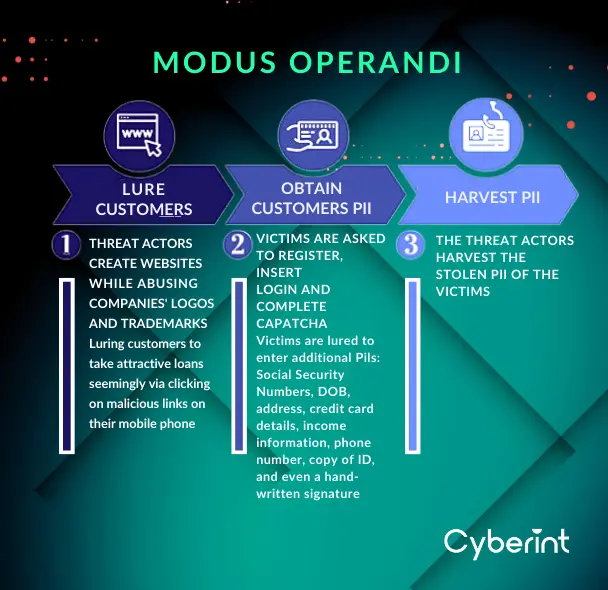
Image: Cyberint
A sophisticated and coordinated cyber phishing campaign has been targeting major financial institutions across Southeast Asia, according to a recent report by Cyberint. This campaign, marked by its complexity and scale, appears to be linked to threat actors affiliated with the People’s Republic of China (PRC).
Over the past eight months, Cyberint has identified a significant phishing operation aimed at deceiving customers of prominent Southeast Asian banks and financial organizations. By creating fake websites that mimic the official sites of these institutions, the attackers have been able to steal vast amounts of personally identifiable information (PII).

The threat actors have been found to use advanced tactics to lure victims, offering enticing loan options to coax them into sharing sensitive information such as social security numbers, dates of birth, addresses, credit card details, income information, phone numbers, copies of IDs, and even handwritten signatures. These sites are particularly targeted at mobile phone users, increasing the risk of data theft as more consumers access financial services on the go.
The geopolitical implications of this campaign are significant. With the growing digital and economic footprint of Southeast Asia, the region has become a focal point for cyber espionage and data theft, particularly from actors with potential links to the Chinese government. This campaign underscores the broader strategic interests and territorial disputes influencing China’s cyber operations.
The Cyberint report sheds light on the technical depths of the adversary’s toolkit:
- Code Obfuscation: HTML source code is peppered with misleading comments and references designed to confuse investigators. Additionally, metadata within images is meticulously scrubbed to hide the origin of visual assets.
- Evolving Infrastructure: The use of network tunneling makes pinpointing the actual command-and-control servers behind the phishing sites extremely difficult. This, combined with the automated site generation, indicates a well-resourced attacker.
- Lingering Questions: While the Chinese connection is strong, the exact motive remains unclear. The relentless focus on data collection could support intelligence-gathering purposes as much as traditional fraud.
The direct consequences of this phishing campaign are severe, ranging from financial losses for individuals to broader reputational damage for the affected institutions. Additionally, the theft of personal and financial data poses long-term risks to the victims, potentially leading to identity theft and financial fraud.
The Asia-Pacific region has become a primary battleground in the cyber domain. This campaign is a stark reminder that financial assets and personal data are constantly at risk, and defenses must evolve accordingly.